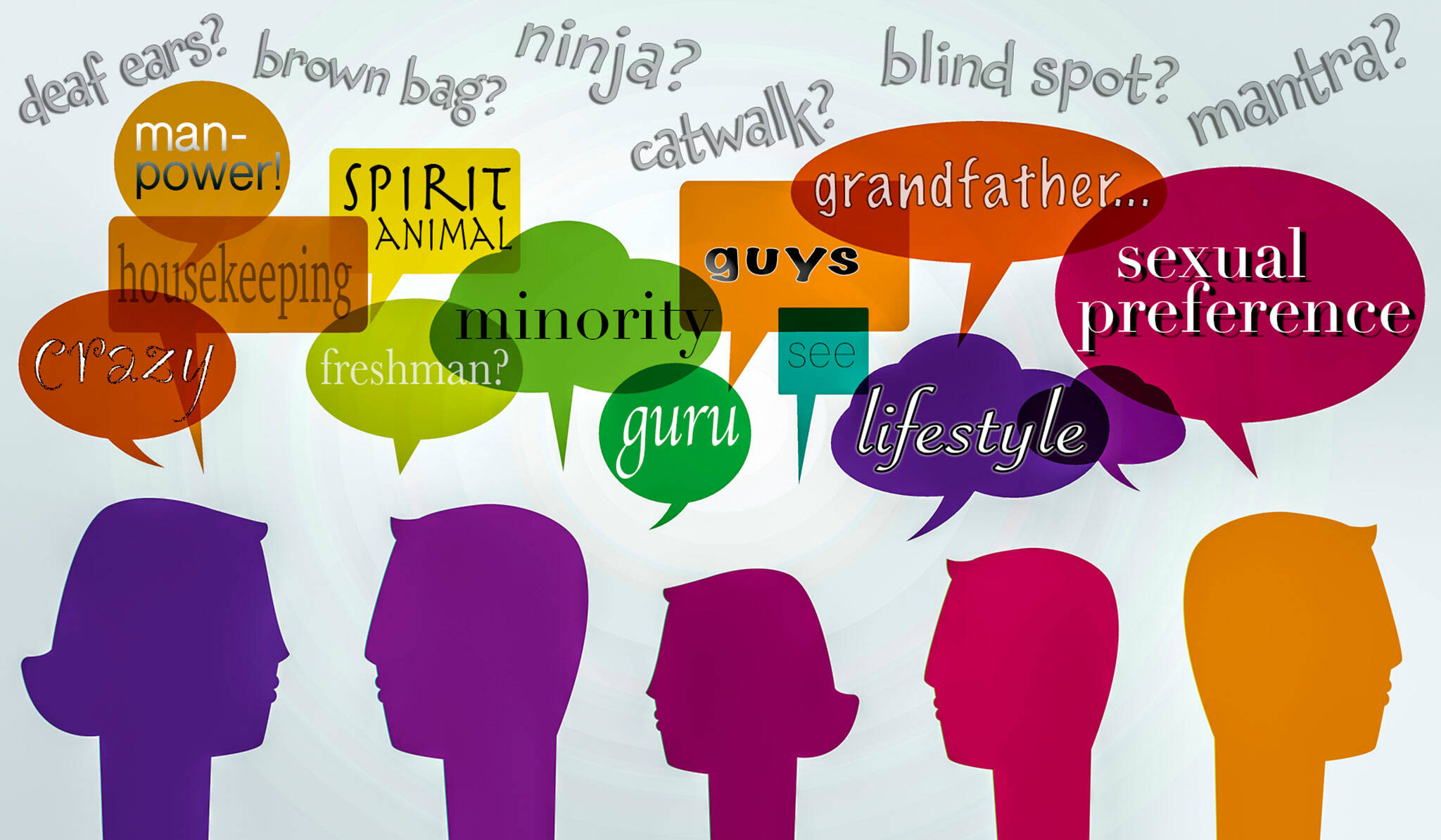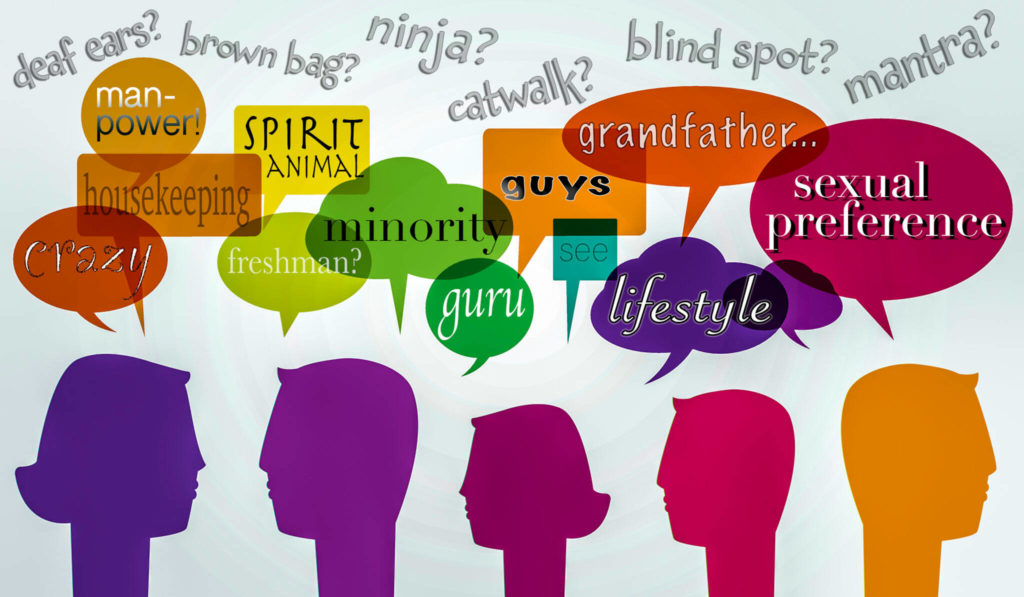In 1994, in an Indiana city similar to Everett, a psychiatric hospital took issue with a waterbed store.
Rich Allen, the Evansville State Hospital spokesperson, sent Crazy Larry’s Waterbeds a request to change its name.
What’s up with that?
“Words such as ‘nuts,’ ‘maniac,’ ‘psycho,’ and ‘crazy’ are offensive to those with a mental illness,” Allen wrote. “Use of such words tends to perpetuate the stigma associated with the disease. … May I suggest some sensitivity for Americans who have a mental illness?”
It made national news. Many people sided with the waterbed store. Crazy Larry’s stayed Crazy Larry’s. He wouldn’t give it up, especially after all the free publicity he got.
Fast forward 30 years.
Rich Allen, my friend, you’d be proud to know that “crazy” is in the recent guide of problematic words compiled by the University of Washington’s Information Technology department.
The word “perpetuates the stigma associated with mental health issues,” the guide says.
That’s just what Allen told Crazy Larry’s in 1994.
The UW guide begins: “Words matter.”
The IT guide complements the UW Marketing & Communications’ Equity Lens resources. “The guide is not policy; however, it is provided as guidance to help IT staff make informed decisions about language,” a UW press statement said.
Words are listed in categories of racist, sexist, ageist and ableist.
On the list: Freshman. Brown bag. Blacklist. Cakewalk. Housekeeping. Spirit animal. Webmaster. Blind spot. Deaf ear. Dumb. Lame. Mantra. Ninja. Guru. Mom/girlfriend test. Guys. Sexual preference. Grandfather.
Many of the words in some form are already on offensive word lists.
The UW list led to a news blitz, 2022-style, fueled by social media and taken out of context.
A number of posts termed the university “problematic,” along with “dumb” and “lame.”
Grandfathers defended their rights to be called grandfathers.
Gramps, don’t get your knickers in a knot.
The word “grandfather” is problematic when “used as a way to exempt some people from a change because of conditions that existed before the change …” the guide explains. “‘Grandfather clause’ originated in the American South in the 1890s as a way to defy the 15th Amendment and prevent black Americans from voting.”
The words “spirit animals, ninja and guru” are problematic because these use “cultural appropriation.”
“No can do,” short for “I can’t do it,” is an imitation of Chinese Pidgin English.
Alternative words are provided.
It was surprising that “Y’all” was endorsed by a Pacific Northwest university.
“Y’all” is suggested, along with “folks, people, friends and you all” in place of “guys” to “avoid gendered pronouns that favor one gender over the other.”
Now this Hoosier-raised reporter needs to rethink “their” (not “her”) frequent use of “You guys” and habit of using “her.”
“Her” is “potentially offensive/non-inclusive” according to the guide, because “… gender and sexual orientation are not binary or limited to male and female or he/she and his/her.”
The guide says “use of ‘man’ is not inclusive, and thus sexist” in “man-in-the-middle, manpower, freshman, upperclassmen.”
“Webmaster” is in the racism section. “Housekeeping” is problematic because it can “feel gendered.”
And I need to stop calling my husband a “gray beard.” That’s ageist, though he is two years older than me. I’m supposed to call him a “knowledgeable person.” No way.
The guide is informative, enlightening and at times entertaining.
It gives the nod to “raining cats and dogs” but says nothing about “stepping in a poodle.”
Hardware shoppers, take note when asking for “male or female connectors and fasteners.”
“Use of male or female anatomy to describe electrical and IT connectors and fasteners and sexualize how they fit together is inherently problematic,” the guide says.
The equity lens has sharpened from social awareness in the past two years.
Offensive language led to the Mukilteo School District’s decision last week to remove “To Kill a Mockingbird” from required reading.
Thien Nguyen, a Mariner High School student board representative, was among those speaking about the hurtful and demeaning words used in the book written in 1960. Some “knowledgeable people” with gray hair who reread the novel agreed. The book wasn’t banned and remains a teaching option.
Much has changed since the book was published and from when waterbeds were cool. Crazy Larry’s is closed.
The word guide isn’t about free speech. It’s about respect.
This isn’t 1960 or 1994 or even 2020.
Words matter.
Andrea Brown: abrown@heraldnet.com; 425-339-3443. Twitter @reporterbrown.
Talk to us
> Give us your news tips.
> Send us a letter to the editor.
> More Herald contact information.


























